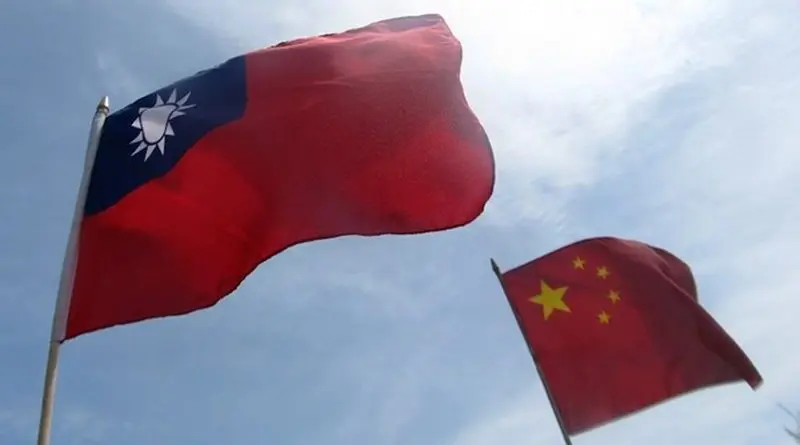US Increases Support For Taiwan In Light Of New Provocations – Analysis
Taiwan’s security is increasingly being challenged by China, with Chinese jet fighters regularly violating the mid-line of the Taiwan Strait. This official buffer is Taiwan’s southwestern air defense identification zone.
A warning from Taipei to Beijing to stop this reckless harassment went unheeded. Naturally, China continues to conduct provocative moves. What is the US doing to help Taiwan, with the presidential election less than a month away?
We know that Beijing claims Taiwan is part of its territory and that Chinese military activities near the island are escalating. Chinese provocations are part of a policy of harassment that is drawing attention to the immediate and near-term requirements for the island’s defense. China’s strategy is to use unilateral military actions to challenge the sovereignty of the Taiwan Strait, while at the same time testing the ability of Taipei and its allies to respond. This cat and mouse game is also part of Hong Kong’s national security status and, thus, is an extension of the creeping claim to Beijing’s idea of rightful property.
In response, Taiwan’s military launches jet fighters and other aircraft to intercept the Chinese planes. The response rate has risen significantly this year. Taiwan argued that Beijing is creating a severe challenge to the island’s security. The Defense Ministry this week said its air force had conducted 4,132 sorties so far this year, up 20 percent on last year. While notable for the dramatic rise in Chinese attempts to violate the air defense zones of the island nation, Taiwan’s scrambling of assets to respond also helps with readiness — a capability that brings reassurance in times of confrontation.
The Chinese behavior is escalating because of growing US support for Taiwan. The visits of senior US diplomats, including Undersecretary of State Keith Krach, along with visits by US defense officials, adds to the atmosphere as Washington becomes more consumed with the Chinese threat. Krach’s high-profile visit came just over a month after a visit by Alex Azar, the US health secretary, which was also met with Chinese opposition.
The US is signing multiple bilateral agreements with Taiwan. Azar and his Taiwanese counterparts in August signed memorandums of understanding promoting cooperation in public health and the development of a coronavirus disease (COVID-19) vaccine.
The two countries are also exploring a bilateral trade agreement after President Tsai Ing-wen decided to allow US pork imports containing a controversial additive — a move that eliminated a key barrier to negotiations. Clearly, the US wants to see Taiwan play a more nimble role against China’s bulky, conventional armed forces. A focus on alternative defenses is becoming fashionable.
Taiwanese Vice Defense Minister Chang Guan-chung said China has been ramping up what he called “realistic training against Taiwan.” In turn, Taiwan is developing unique systems. Chang said that the concepts and production and deployment of these systems are unique. “They are small, numerous, smart, stealthy, fast, mobile, low-cost, survivable, effective, easy to develop, maintain and preserve, and difficult to detect and counter,” he said.
Chang is seeking US support for reforming Taiwan’s defense system with enhanced military modernization. He added: “We will also emphasize joint effort in training, operational concepts, capability assessment, intelligence sharing, and armament cooperation. These are equally important as the acquisition of hardware.”
This type of modesty in what Taiwan requires is being answered by sympathetic ears in Washington. Moreover, Taiwan’s military is likely to speed up reservist rotations to an annual exercise to ensure combat readiness.
Right now, the focus regarding Taiwan is in Japan. Tuesday’s meeting of “the Quad” (Australia, India, Japan and the US) in Tokyo was an immediate case in point. That group, which began to coordinate as far back as 2004 in the wake of the devastating tsunami that killed hundreds of thousands across Indonesia, Thailand, India and Sri Lanka, is growing its coordination against Beijing.
It is also important to recall that China and India engaged in their worst border clash in 40 years recently, while relations between Australia and China have deteriorated since Canberra argued that a surge of cyberattacks against the country’s media and banking system was an attempt by Beijing to interfere in the country’s internal politics.
Moreover, Tokyo feels Chinese pressure very strongly. Japan has also grown more vigilant, as China has repeatedly sent ships to patrol waters around the Senkaku Islands, which are administered by Japan but wanted by China in terms of sovereignty rights.
The Quad’s current unity against China is aimed at expanding its members’ coordination and interoperability on key issues in East Asia. It argues for a “free and open Indo-Pacific,” which is a concept invoked by the group’s foreign ministers.
Depending on the result of the US election, a Biden administration would naturally join the Quad as an active member, continuing what was started by the Trump administration, because of the structure of the relationship and the keen focus on Taiwan. Taiwan itself faces a true challenge to its stability and security, but it is receiving the regional and defensive help it needs at the appropriate time.

